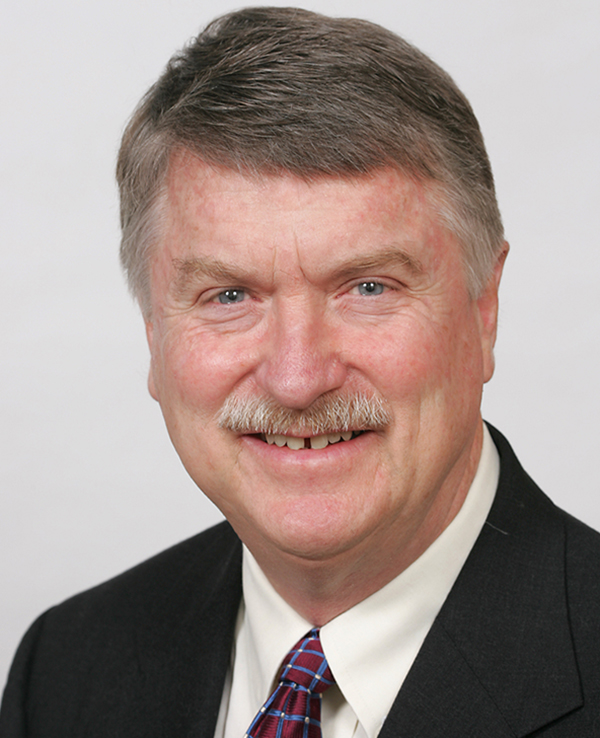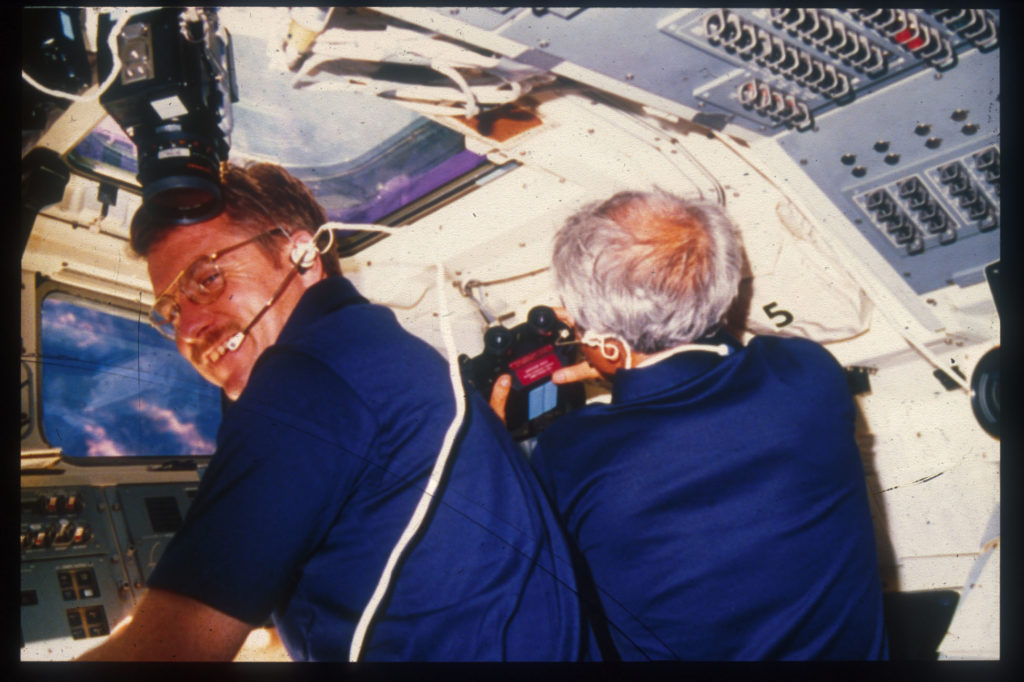Anthony England, former NASA astronaut, professor, and dean, retires

Professor Anthony England, who served as Dean of the College of Engineering and Computer Science at the University of Michigan-Dearborn from 2014 to 2020, retired this past June. He joined U-M as a professor of Electrical Engineering and Computer Science in 1988, and he served as Associate Dean for the Rackham School of Graduate Studies from 1995-1998.
England’s research has included ground probing radar, radar studies of temperate and polar glaciers in Alaska and during two field seasons participating in and leading traverses in the Pensacola Mountains of Antarctica, and microwave studies of snow, ice, freezing soils, and planetary regoliths (layers of dust usually caused by meteor impact). He focused on modeling processes that occur in the soil, vegetation, or snow to inform weather and climate models, which helps predict patterns in climate change.
“Back in the 1970s we began to understand that the earth sciences were linked together,” England says. “You couldn’t understand global climate-and the human effect on climate-without considering the atmosphere, the ocean, and the water cycle because they were all interrelated.”
England specifically wanted to improve tools for hydrologists to monitor the water cycle with a global perspective. He went on to lay the groundwork for remote-sensing satellite systems through a project called HYDROSTAR, for which he was principal investigator. He also served as head of U-M’s Microwave Geophysics Group, which does geophysical remote sensing.
“Our group is one of the first to start generating land-surface process models that can be linked to satellite observations,” England said. “We also make the field instruments needed to calibrate and validate the models. The cost of having these instruments designed and built by industry is prohibitive, and, by incorporating new technology ourselves, we are able to build better instruments than have been built before.”
Former graduate students of England’s have expressed high regard not only for their training under England, but also for his patient and compassionate mentoring.
“Tony is a pure gentleman,” said Brian Hornbuckle (MSE EE 1997; PhD Electrical Engineering and Atmospheric Science 2003), the Director of Graduate Education and a professor of Agricultural Meteorology at Iowa State University. “One of the biggest impacts he’s had on my career is that he does things the right way – he’s always thinking of the other person, and is very accommodating. He has such high integrity and he won’t compromise on things that matter.”
Jasmeet Judge, a professor of Microwave Remote Sensing at the University of Florida, began a mentoring program of her own inspired by England’s example.
“I really appreciate Tony’s tailored mentoring style,” she said. “He tries to understand the person and see what that person really needs. He doesn’t push people. Michigan attracts high-quality students, and this method is very good for them.”
England earned bachelor’s and master’s degrees in geophysics and geology, respectively, from the Massachusetts Institute of Technology (MIT), as well as a PhD in geophysics in 1970. Prior to joining the U-M, England was a scientist and former astronaut with NASA.

If you’ve watched the film Apollo 13, you’ve already seen him at work. England was the real-life NASA astronaut who wrote the procedure to build the CO2 scrubber that enabled the astronauts to return safely to Earth – the scene in the movie where the team had to figure out how to fit a square peg in a round hole, essentially. For their extraordinary work, England and the rest of the team received the Presidential Medal of Freedom in 1970.
England also served as mission scientist for Apollo 16 and as a space station program scientist in 1986-87. While England’s opportunity to fly to the Moon was lost when Apollos 18 through 20 were cancelled, he did fly as a mission specialist crewman on Space Shuttle Challenger in the summer of 1985. His mission focused upon solar astronomy and plasma physics.
“We were in a high inclination orbit, and you could see the aurora over Antarctica standing up as a green curtain with waves on the front of it,” England remembered. “This was in early August during the Perseid showers, so while you’re watching the aurora, you’re seeing shooting stars below you. It’s pretty spectacular to see the Earth that way.”
This was in early August during the Perseid showers, so while you’re watching the aurora, you’re seeing shooting stars below you. It’s pretty spectacular to see the Earth that way.
Prof. Anthony England
England combined his love for science, his experiences at NASA, and his concern for teaching, with area K-12 children. He has given hundreds of speeches to school children about careers in science and education.
“My message is that science and engineering can be exciting, and that research universities even offer opportunities for students to work on instruments that could fly into space,” England said. “They begin to see the university as a place to do things and experience things and not just as a place to go to read books. All science and engineering is a physical experience. It’s an adventure.”
In addition to receiving the Presidential Medal of Freedom, England is an IEEE Fellow, and recipient of the U.S. Antarctic Medal, NASA Outstanding Scientific Achievement Medal, NASA Space Flight Medal, NASA Exceptional Service Medal, Radio Society of Great Britain’s Calcutta Key, American Astronomical Society Flight Achievement Award, and the IEEE Judith A. Resnik Award.
While a faculty member at the University of Michigan, he received the Harold R. Johnson Diversity Service Award, the NCID Exemplary Diversity Engagement and Scholarship Award, the Susan B. Anthony Campus Award, the UROP Recognition Award for Outstanding Research Mentorship, and the Rhetaugh G. Dumas Progress in Diversifying Award from the Academic Women’s Caucus.
England said he is looking forward to enjoying the new rocking chair the university gifted him in honor of his retirement.
“When I am not in my new chair on the covered porch of my retirement house overlooking Lake Michigan near Charlevoix, I will be flying N718SE, a modern version of a Piper Cub, or sailing the Kathi Ann, a power boat built in Maine on a lobsterman’s hull and designed for exploring the Great Lakes,” England said.
 MENU
MENU 
